After the first part of Dune in 2021, I had mixed feelings. Like other fans of Frank Herbert's book series, I had been eagerly awaiting a new adaptation of his flagship book. The 1984 film, directed by David Lynch, although outstanding in my opinion, suffered from a serious brevity, as the richness of the novel's plot cannot be contained in a 2-hour film. Moreover, the special effects from the 80s no longer impress today.
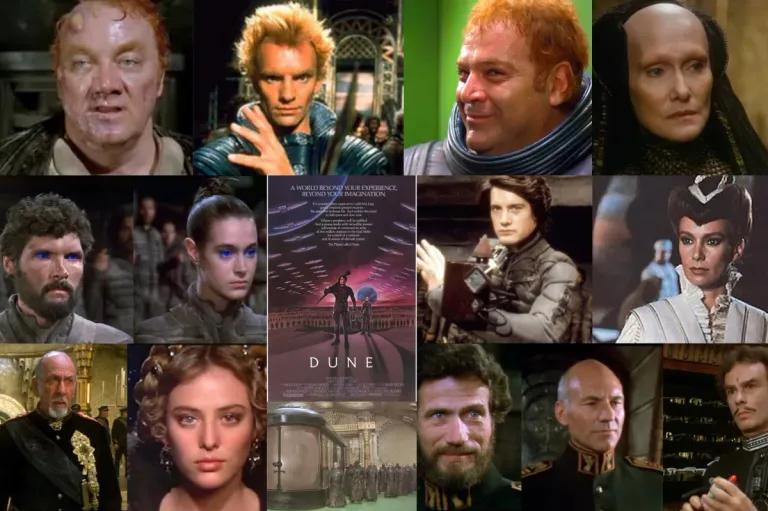
In 2021, we received the first part of the planned film trilogy. Technically, the film was well executed and the visual layer was impressing. In terms of the plot, it wasn't even that bad, and the acting was quite good. However, there were some missteps, most notably the disturbing change of one of the important characters. The imperial planetologist Liet Kynes - described in the book as a man with a red-blond beard - was turned into a black woman who played her role very poorly. At that point, it was difficult to determine whether this was a single move aimed at conforming to the ideological requirements of the AMPAS, which have been awarding Oscars rather for compliance with left-wing ideology and political correctness since last years, rather than the artistic merits of the film, or a sign of a deeper overhaul of Herbert's original plot and tone. I described my impressions of the first part of Dune in this ironically twisted text:
https://peakd.com/hive-166847/@dysydent/politically-incorrect-review-of-new-dune-movie-2021-engpl
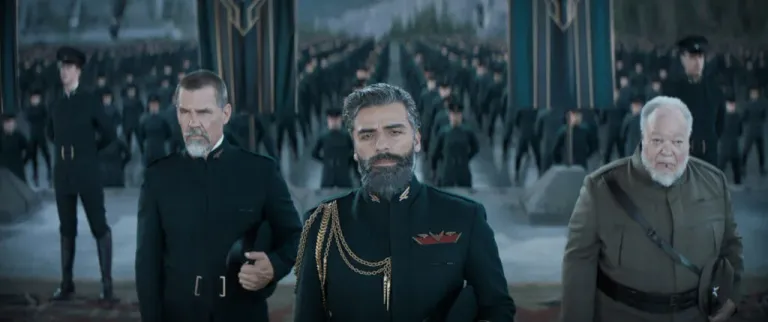
Unfortunately, in the second part of the adaptation, my worst fears came to fruition. The Fremen turn out to be a strange mix of people of different races (but all colored), which is completely irrational. This is a community living in internal isolation for 10,000 years. If even among their ancestors there were people of different races, after such a long time living on Dune, they would have become completely uniform. In the novel, one of the Fremen characters is described as having olive-fair skin, so actors from Pakistan or similar regions of the Middle East would fit here. The ancestors of the Fremen were the Zensunni – people combining the spirituality of the Near and Far East. In any case, whatever the color of the Fremen's skin, they would certainly have to be shown as a homogeneous, hermetically sealed nation. So why did Villeneuve show them as a colorful mix: from slightly pigmented people to Sub-Saharan blacks? Probably because he wanted to liken them to the modern-day so-called "refugees", or rather "invaders" (because most of them are not fleeing any war), who are storming Europe in successive waves of the "migration crisis".
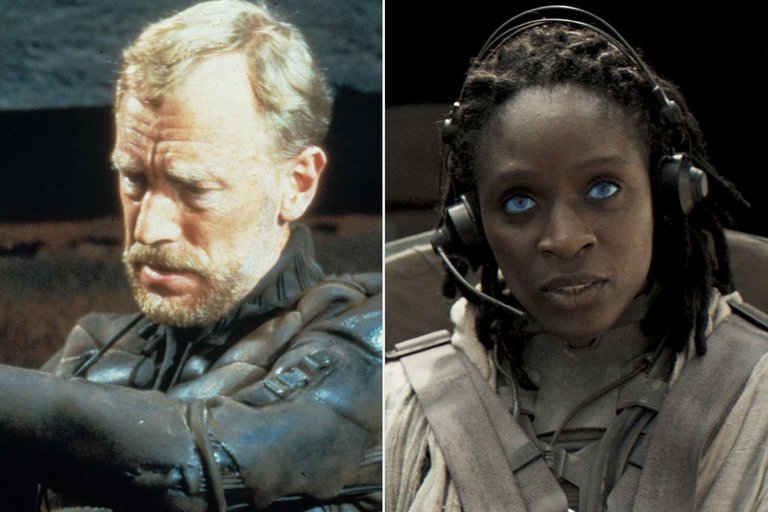
Moreover, the Fremen community is changed not only in racial terms. This in itself could somehow be overcome, understood as a sacrifice to the Moloch of political correctness. Unfortunately, the way Fremen's functioning and social rules were changed is absurd way and completely inconsistent with the spirit of the novel. At one point, Chani says to Paul, "Here [among the Fremen] we are all equal - women and men," and we see confirmation of these words in the fact that groups of Fremen warriors are mixed not only racially, but also by gender. And this also applies to the elite Fedaykin - Muad'Dib's holy warriors. Meanwhile, in the novel, the Fremen are a strictly patriarchal community, and women are part of men's property. That is why the character of Harah, who is quite important for the novel, does not appear in the film at all - a Fremen woman whom Paul receives along with the rest of the belongings of the defeated Jamis. By the way, in the second part of the film there is another character transformed by Villeneuve into a woman. This is Shishakli - the second of the gang of progressive girls, Chani's best friend. In the novel, Shishakli is a man - the commander of the Fedaykin brigade.
[Here I must mention a certain slang word that is missing in English and which I used when writing this text in Polish. This word is "julka" (pronunciation: /youlkah/ ) - a diminutive of the name Julia, especially often given to girls who are currently in their teens or early twenties. It's a similar pattern to Karen, Becky, Stacy in English. The difference is that "julka" means a young, naive, not very smart girl who blindly buys the propaganda of the ideology of "woke", "social progress" and similar leftist nonsense. She often dyes her hair green or orange and has a fringe. She swears a lot and thinks that then she will be a "strong, independent woman". The term went viral after protests against the tightening of abortion law in Poland in 2020, which were called a "julkas strike" by their opponents. By this analogy, I called the group of progressive Fremen women “the gang of julkas”.]
Another intrusive, ideologically imposed change in the novel is the religious split among the Fremen and the introduction of an artificial division of their community into north and south. In the novel, all Fremen are religious. Their religion is one with their life, their law, their entire social existence. If any of them doubted Paul Muad'Dib, they doubted whether he was actually the prophet of their prophecy. They argued about the interpretation of the signs, but no one questioned the prophecy and beliefs themselves. Meanwhile, in the film we see a group of female warriors sitting around, with Chani shining among them, who are mocking Stilgar praying aloud ("he's from the south - can't you hear his accent?"), mocking prophecies, rituals, all this. , which in the novel is the essence of Fremen life. Progressive, "liberated" Fremen women are like gangrene that spreads over the entire plot and poisons it with incoherence. What about the north-south divide? This is, after all, a reference to the conflict that has been tearing the United States apart to this day, since the Civil War. In Villeneuve's film abomination, the south is inhabited by "fundamentalists" (this word is not even used in the novel), and the north is inhabited by "progressive Fremen" who "reject fairy tales". This is, after all, a reference to "young urban liberals" who in the USA support toxic ideologies of gender, LGBT, feminism, etc. in conflict with "far-right", "rednecks", "religious fanatics", "homophobes", "misogynists" and the like, nonsense expressions of the reasonable and usually southern part of US society.
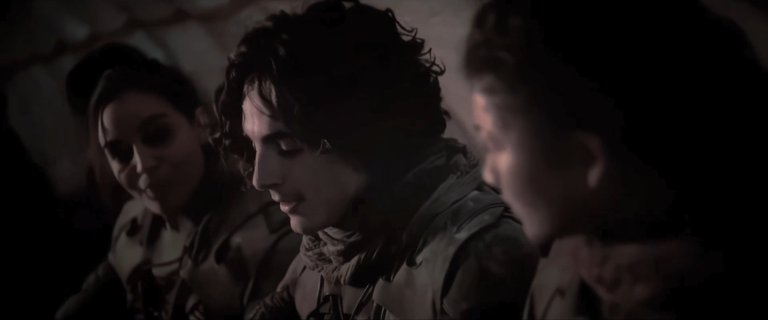
The next element of the plot distorted for ideological reasons are the Harkonnens. The novel's Baron Vladimir Harkonnen is a sleazy, fat homosexual, probably a pedophile, who uses the sexual services of young slaves. This motif is also highlighted in the film adaptation from 1984, before the dictatorship of political correctness. In Villeneuve's work, of course, this element is removed. There is a scene where two bodies lie in the baron's quarters, but it is not even possible to determine their sex, and there is no sexual character in the scene. However, the way the Harkonnens are shown there is very specific. They are even visually whitened - they are the whitest characters in the film, in accordance with the dogma according to which positive characters are to be of color or mixed race and gender, and negative characters are always white, heterosexual men. They are also bald, of course, like Skinheads. The scene of the duel in the arena between Feyd-Rautha and the slaves is shown in a special way - the film becomes black and white, and the entire surroundings have a character reminiscent of the architecture of the Third Reich. In fact, the crowd in the stands even seems to "hail" at some point. This was apparently the idea - to show the Harkonnens as the "extreme right" (apart from the fact that the Nazis were not actually right wing at all). Meanwhile, in the original book, the Harkonnens were closer to the communist Soviet reality, where dirt is covered with fresh paint for show. The book Harkonnens do not care about the typically Nazi ideas of "purity" and "order", but about the implementation of the "plan", "norms" and, above all, intrigues that mock all honorable limitations.
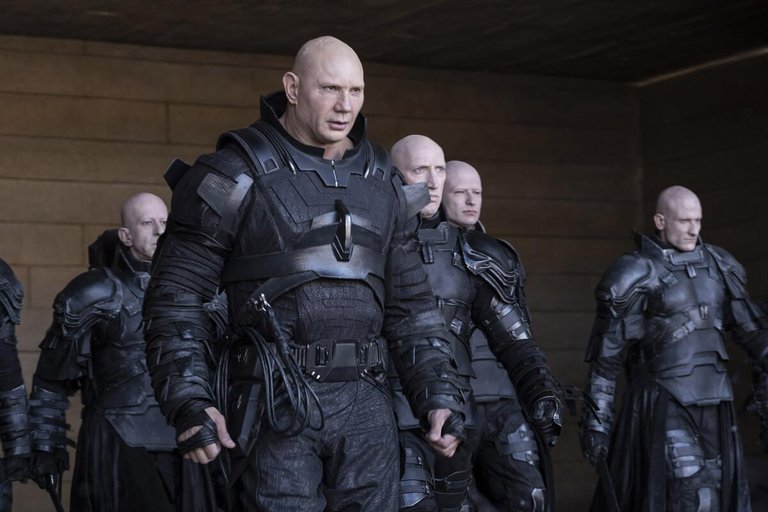
The above ideological changes would ruin even a film with many other merits, but unfortunately there are many more flaws.
The level of acting and the way individual characters present themselves in the second part of Dune is generally poor, although it must be honestly admitted that it is not always the actors' fault, and in many cases it results from idiotic ideas written into the script. Stilgar is definitely a victim of the scenario. He was made into an idiot, a religious, blinded naive, so that he fell victim to memes mocking him.
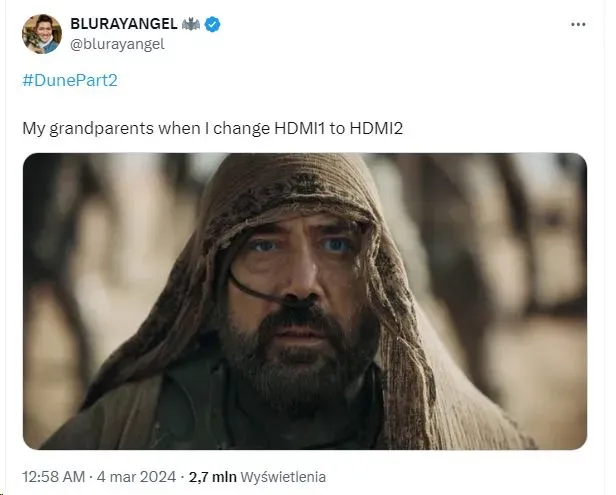
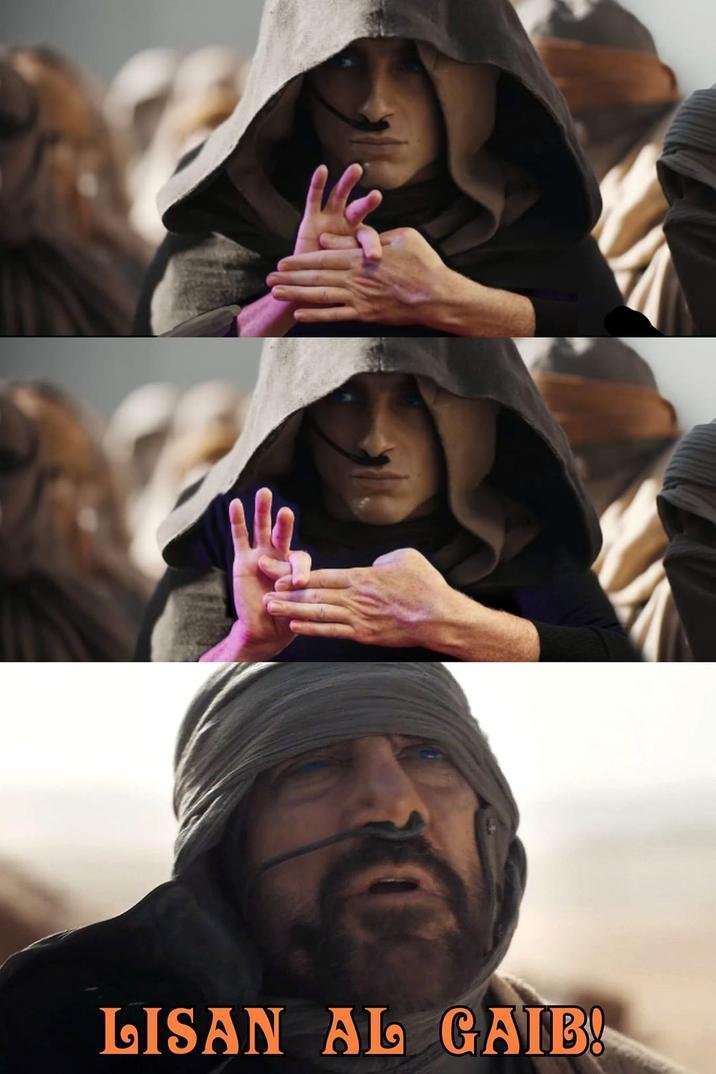
Stilgar from the book was a charismatic leader, a man full of wisdom, common sense and inner strength. Jessica also suffers from a stupid script. In the first part of Villeneuve's series, Rebecca Fergusson, who plays her, has the opportunity to prove herself as an actress - there are interesting motifs related to a mother's care for her son and husband, and conflicts related to loyalty to the order. In the second part, Jessica becomes a rough-hewn intriguer, understandable even to the stupidest viewer, and insulting the intelligence of the more sophisticated viewer. This character is no longer as multidimensional and interesting as in the first part. Chani played by a certain Zendaya is absolutely wooden in terms of acting. And this is regardless of the fact that, unlike the book's highly spiritual character, she was made into a smart-ass “julka” in the film. She's just like that - expressionless. Harkonnens are generally shallow. The baron transforms from a master of intrigue into a village intriguer with little brains.
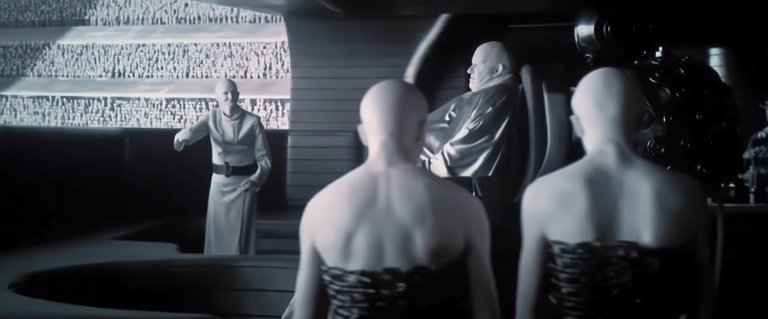
Rabban was made into a muscle-bound idiot who doesn't understand anything - meanwhile in the book he was an interesting character because on the one hand he "doesn't know how to intrigue" like his uncle and brother, which is why he was despised by them (undeservedly, actually), but on the other hand on the other hand, he was a capable commander and administrator who clearly saw the threat to them from the Fremen and took care of issues such as intelligence, but his conclusions and warnings were rejected by the ignorant baron. However, Feyd-Rautha completely rejects me. I know that many people were impressed by his portrayal of him as a "terrifying psychopath", but I rather found him silly-looking because the make-up made for him makes him look a bit like a handicapped child with hydrocephalus. The 1984 portrayal of Sting was much better, closely matching the book original and commanding respect.
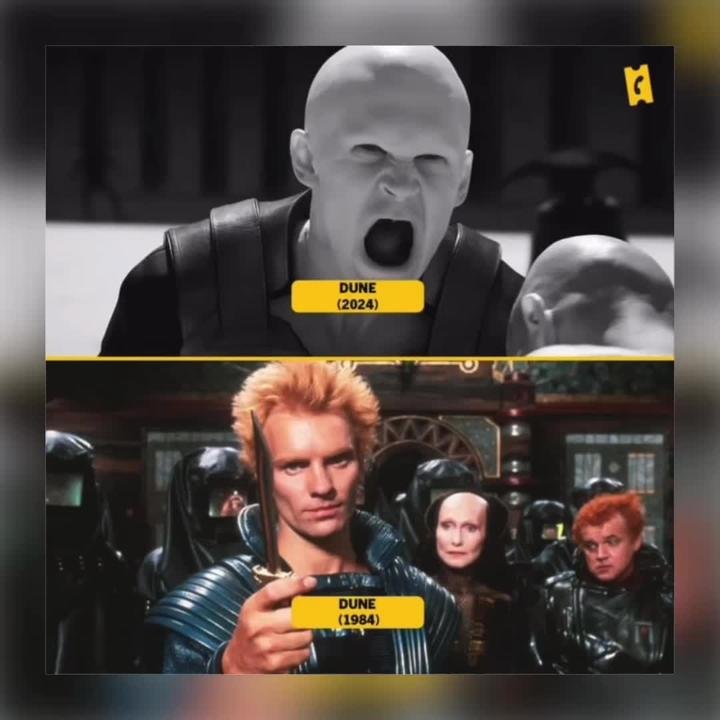
Paul, played by Timothée Chalamet, is at best mediocre. He manages, but again, the script and direction fail - his transformation from a young boy from the Atreides court into a strong leader of a battle-hardened people is not clearly portrayed. There is not much of his novel's dilemmas or internal struggle here - this was even more emphasized in the first part of the film, which should have only been an introduction to this element of the plot. By the way, there is also no beauty of love between Paul and Chani, affectionately called by him in private: Sihaja - spring of the desert. In the film, Chani despises this name because she is supposedly "strong women" and their relationship lacks of any depth of love, looking artificial and insincere.
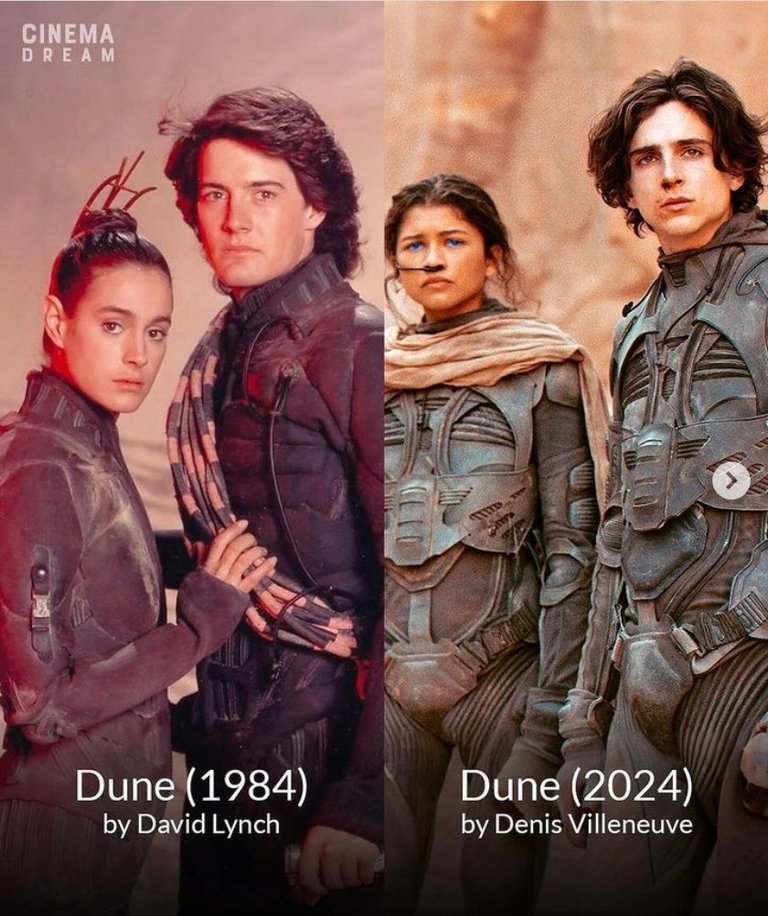
The plot is cruelly simplified and shallow. It is significant that even Lynch, who had 2 hours and 17 minutes to adapt the entire first volume of Dune, included more plot elements and maintained much more coherence than Villeneuve, who had a total of 5 hours and 21 minutes in two parts. What we currently have on the screen in the second part is 2.5 hours of chaotic knife fight, not even particularly flashy swordplay, just in line with standard Hollywood production, interspersed with Zendaya's sulky face or some stiff dialogue. The film fails to show at all what Paul's contribution to the Fremen's fight against the Harkonnens would be. In the original novel, along with his mother, they teach the Fremen the Atreides fighting techniques and the secrets of controlling the body known to the Bene Gesserit. The book's Stilgar calls it "magic combat technique". Additionally, Paul enriches the Fremen arsenal with rockets and some kind of firearms. In Lynch's 1984 adaptation, due to Lynch's aversion to the then fashion for martial arts, a greater role was played by military technology and the secret weapon of the Atreides in the form of sonic modules, which he invented. It made some sense and coherence despite departing from the book's plot. In Villeneuve's book, Paul and his mother add absolutely nothing to the Fremen's fighting abilities, except maybe a nuclear weapon at the very end of the film. However, the viewer without knowledge of the book will not understand why they are destroying the wall with these rockets and then fighting with knives, instead of destroying the entire Sardaukar army. Here, the director requires the viewer to know the book, and at the same time he violates the book's plot mercilessly in a number of places.
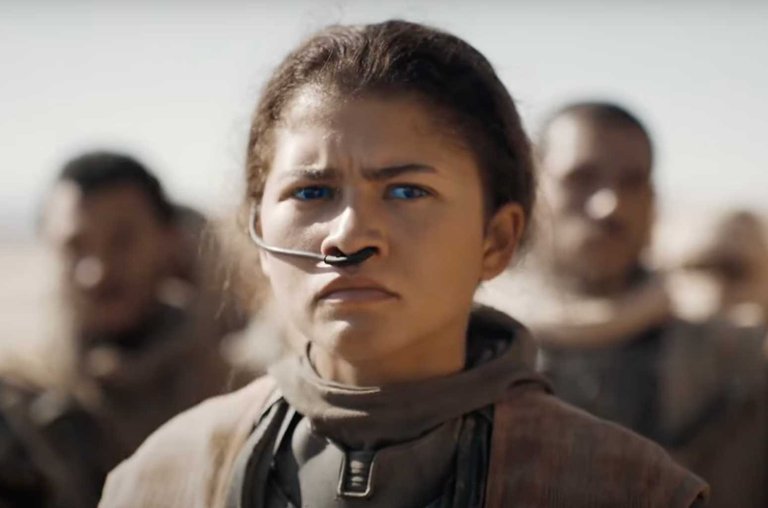
And there are plenty of minor errors that violate logic. I have already written about this misgendered Kynes, who ties invisible ligaments in still suits, in my impressions from the first part of the film. In the second one, for example, we have a scene when, after defeating the Harkonnens, the Fremen extract water from their bodies and Stilgar says that it is "dirty water, contaminated with chemicals, but sufficient for cooling systems." This passage is a rape of the mind. If they are able to obtain transparent water from blood and other body fluids, there are certainly no "chemistry" there, because it is a distillate. This nonsense does not appear in the book, and in the movie it is unclear why it was included. And then Jessica vomiting right after... God, this is so against the spirit of the book it's unbelievable. Jessica, who has control over every single muscle and nerve in her body thanks to her prana-bindu training, begins to vomit uncontrollably, which she knows is an insult to the Fremen. < palmface >. Needless to say, the word "vomit" does not appear in the book at all. Paul in the book sheds a tear at some point, which has a huge impact. Jessica allows herself to cry at several points in the novel, but never in the presence of the Fremen. Another issue: nuclear weapons. Why does Paul use it against the barrier wall but not against the Sardaukar army? Anyone who knows the book knows this, but Villeneuve does not respect the original plot at all, and yet he does not explain many elements to the viewer at all. How does the water of life ritual work? Why Chani is able to heal Paul after drinking it? You must read the book, viewer, because five hours were not enough for director to explain the basic aspects of the book. Yet, five minutes less of haphazard running in the desert and a few short scenes or lines of dialogue instead would make everything clear even to viewers who have not read the novel.
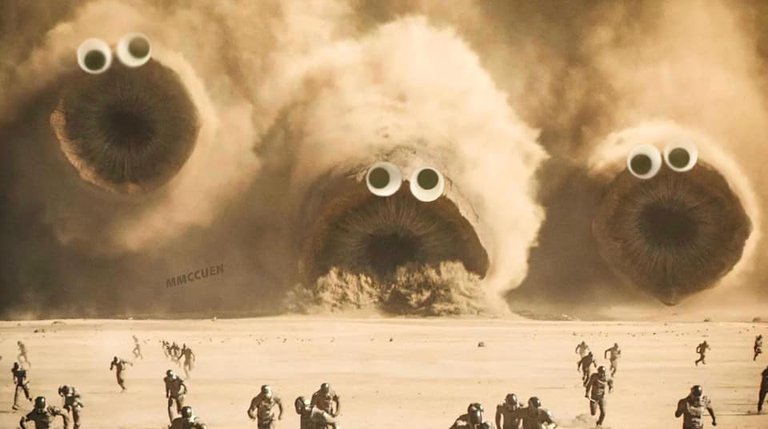
And since we are talking about the Water of Life - in the book, Paul tries it on his own, secretly, without informing anyone. He needs help from Chani and Jessica to regain consciousness, but he reaches a higher level of awareness. There is an element of triumph over women - when he becomes the Kwisatz Haderach - a man who reaches the place inaccessible to women, which fills them with fear. In Villeneuve's politically correct film, this cannot resonate. So, in the film, Jessica manipulates Paul in a primitive way to make him drink the holy water, and Chani saves him, opposing those "religious superstitions" (in the book, Chani is deeply religious and is a priestess' servant). As a result, Paul follows like a sleepwalker where his mother, the "schemer", wants him to go. In a sense, Jessica unleashes evil in Paul - but why? Perhaps Villeneuve imagined it in some shallow interpretation of the book, based on the idea that Herbert did not want to portray Paul as a leader but to deconstruct the figure of a charismatic leader. But where Herbert's work is ambiguous, philosophical, and open to multiple interpretations, Villeneuve's version is simplistic anti-elitism.
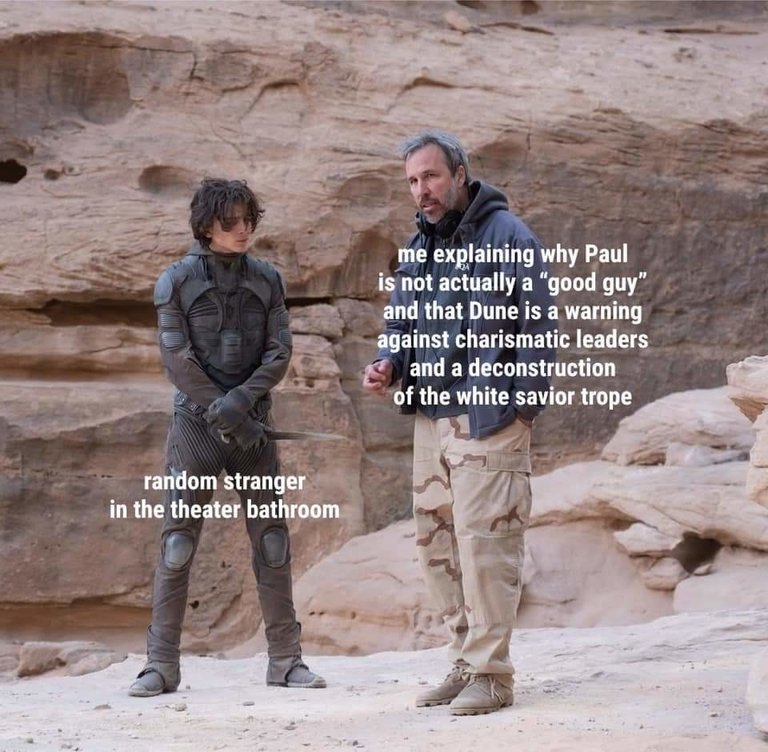
Film music is also dull. I don't completely understand some people's admiration for this soundtrack. It's true that at times it fits the "desert atmosphere", but nothing more. It lacks depth and expressive power. The music from Lynch's film adaptation was incomparably better - charismatic and expressive. I remember that in this new film adaptation I noticed a frame from the moment of the attack of the Harkonnen’s ornithopters. It was interesting, although it only flashed for a second. It could have been developed into some form of reference to "Apocalypse Now" and strengthened with appropriate music (in Coppola's case it is Wagner), but unfortunately in Villeneuve's case this potential again dissolves into blandness.

I rate the whole thing a maximum of 4/10. There are a few more interesting or rather tolerable scenes, e.g. Paul's speech to the Fremen in the circle, a few nicer shots. It's clear that a lot of money was put into this adaptation. An advantage is the languages of Fremen or Harkonnen developed especially for the film. Unfortunately, it is money wasted, because the complete destruction of the plot and its subordination to political correctness, along with a whole range of mistakes and shortcomings, ruins this film. To contrast, I give the first part of the film a higher score - 6/10, because there are more interesting details, more cinematic scope, better acting, and the problems with the broken plot and its ideological corruption are only beginning to become visible here and there.